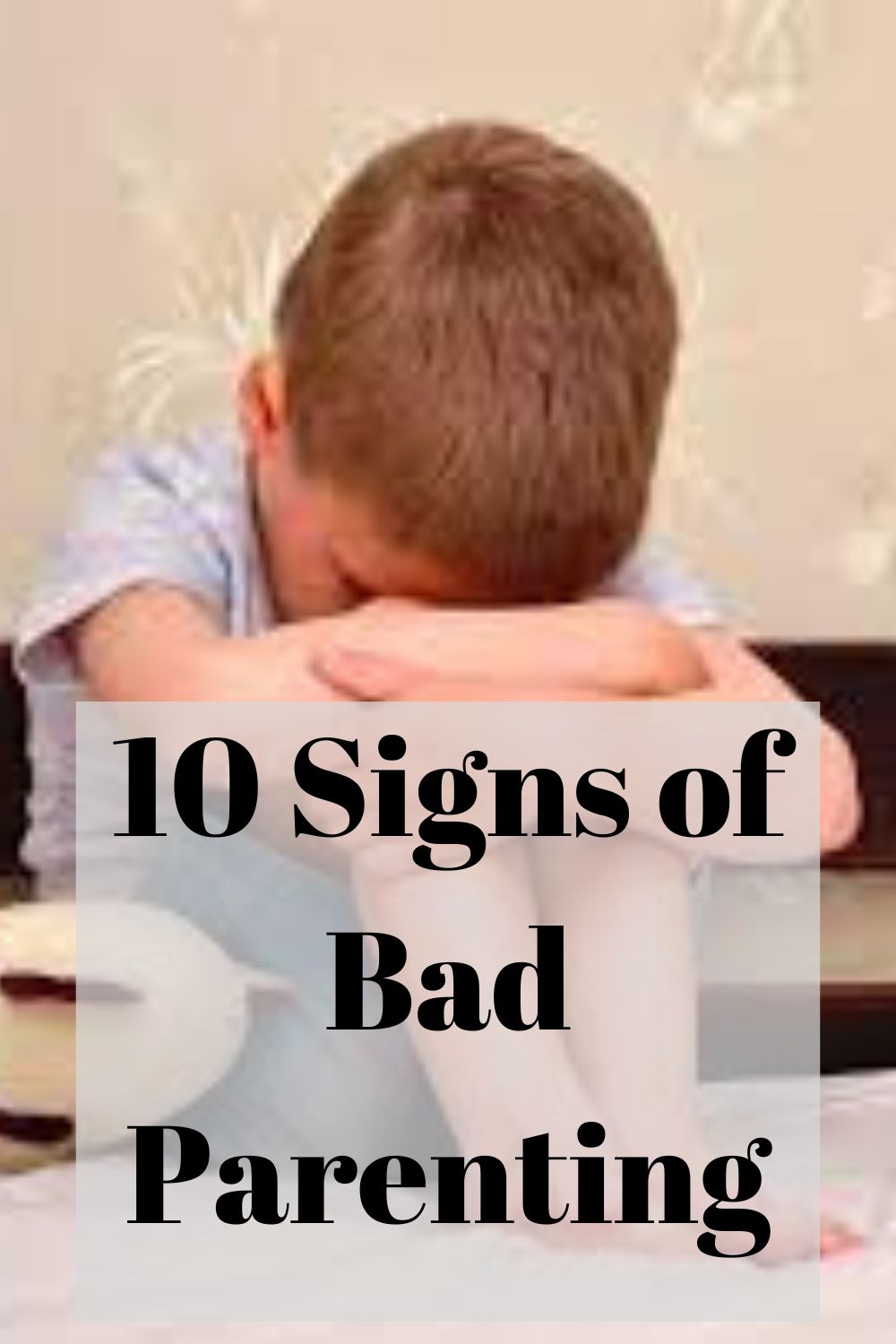Discover the tell tale signs of bad parenting and their impact on a child’s development in this insightful article. Learn how to improve your parenting skills, provide emotional support, and set clear boundaries for a nurturing environment. Find valuable tips to become a better parent and guide your child towards a brighter future. Read now and ensure your child’s well-being and emotional growth.
- Introduction
- What is Parenting?
- The Impact of Parenting on Child Development
- 10 Signs of Bad Parenting
- 4.1 Lack of Emotional Support
- 4.2 Inconsistent Discipline
- 4.3 Overindulgence and Spoiling
- 4.4 Neglect or Ignoring the Child
- 4.5 Excessive Criticism
- 4.6 Setting Unrealistic Expectations
- 4.7 Favoritism
- 4.8 Lack of Boundaries
- 4.9 Failure to Lead by Example
- 4.10 Lack of Communication
- The Long-Term Effects of Bad Parenting
- Tips for Improving Parenting Skills
- Conclusion
- FAQs
Introduction
Parenting is one of the most challenging yet rewarding roles a person can take on. The way parents interact with their children has a profound impact on their emotional, social, and cognitive development. Effective parenting fosters a loving and nurturing environment, which helps children grow into confident and well-adjusted individuals. However, not all parenting styles are beneficial; some can lead to negative outcomes for the child. In this article, we will explore ten signs of bad parenting and their potential consequences.
What is Parenting?
Parenting can be described as the process of raising and nurturing a child from infancy to adulthood. It involves providing physical care, emotional support, guidance, and discipline to help the child develop into a responsible and compassionate individual. Parenting styles can vary significantly, but their effects on the child’s growth and development remain crucial.
The Impact of Parenting on Child Development
Effective parenting plays a vital role in shaping a child’s personality, behavior, and overall well-being. Positive parenting practices, such as showing affection, setting boundaries, and offering encouragement, can lead to secure attachment and higher self-esteem in children. On the other hand, bad parenting practices can have long-lasting negative effects on a child’s mental and emotional health.
10 Signs of Bad Parenting
1 Lack of Emotional Support
Children need emotional support from their parents to feel safe and secure. A lack of emotional support can lead to feelings of neglect and emotional distress in the child.
2 Inconsistent Discipline
Inconsistent discipline can confuse the child about acceptable behavior. When rules and consequences are not clear or enforced consistently, the child may become disobedient or anxious.
3 Overindulgence and Spoiling
Spoiling a child with excessive material possessions or allowing them to have their way all the time can create a sense of entitlement and lack of appreciation for others.
4 Neglect or Ignoring the Child
Emotional or physical neglect can have severe consequences for a child’s development. When a child’s needs are consistently ignored, they may struggle with forming healthy relationships and developing trust.
5 Excessive Criticism
Constant criticism can harm a child’s self-esteem and confidence. They may develop feelings of inadequacy and become overly self-critical.
6 Setting Unrealistic Expectations
Placing unrealistic expectations on a child can lead to feelings of constant failure and frustration. It is essential to set achievable goals and celebrate the child’s efforts.
7 Favoritism
Showing favoritism towards one child over others can breed resentment and jealousy among siblings, leading to strained family relationships.
8 Lack of Boundaries
Not setting appropriate boundaries can result in undisciplined and disrespectful behavior. Children need boundaries to understand limits and consequences.
9 Failure to Lead by Example
Parents serve as role models for their children. When parents engage in negative behaviors, suchs aggression or dishonesty, children are more likely to mimic those actions.
10 Lack of Communication
Effective communication is vital in parent-child relationships. Failing to communicate openly and honestly can lead to misunderstandings and emotional distance.
The Long-Term Effects of Bad Parenting
Children who experience bad parenting may carry the emotional scars into adulthood. They may struggle with forming healthy relationships, experience difficulties in managing their emotions, and have lower self-esteem. These effects can impact their academic and professional lives, making it challenging to reach their full potential.
Tips for Improving Parenting Skills
- Listen to Your Child: Take the time to listen to your child’s thoughts and feelings without judgment.
- Show Love and Affection: Express love and affection regularly to create a strong emotional bond.
- Set Clear Boundaries: Establish clear and consistent rules for behavior and consequences for breaking them.
- Lead by Example: Demonstrate the values and behaviors you wish to see in your child.
- Communicate Openly: Encourage open and honest communication with your child to build trust.
Conclusion
Parenting is a significant responsibility that requires love, patience, and understanding. While no parent is perfect, being aware of the signs of bad parenting can help us strive to improve our parenting skills. Providing emotional support, consistent discipline, and a nurturing environment can make a world of difference in a child’s life. Let’s strive to be the best parents we can be, guiding our children towards a bright and promising future.
FAQs
Q. Can bad parenting be changed?
Yes, bad parenting can be changed with self-awareness and a willingness to improve.
Q. What are the long-term effects of neglectful parenting?
Neglectful parenting can lead to emotional and behavioral issues in children that may persist into adulthood.
Q. How can I be a more patient parent?
Practicing self-care, taking breaks when needed, and seeking support from others can help you become a more patient parent.
Q. Is it normal to feel overwhelmed as a parent?
Yes, parenting can be challenging, and it’s normal to feel overwhelmed at times. Seeking help and support from loved ones can be beneficial.
Q. Can a single parent provide effective parenting?
Yes, a single parent can provide effective parenting with love, consistency, and support from friends and family.
